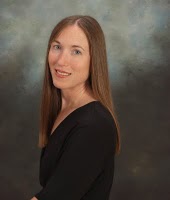Why is building a platform important, even if you’re an unpublished writer? Besides the future promotional benefits, you also develop the discipline of writing (sometimes daily) for a responsive audience of readers. Writing interesting content daily is wonderful practice. And having an established online community that you’ll later be able to promote to is always a plus for a publisher.
Some things to consider when building your platform:
Do
Do use your blog as a way to practice writing regularly. Try to post on a regular schedule, even if it’s just twice a week. If you feel more comfortable having a buffer between you and the demands of your blog, consider building up several weeks’ worth of posts before you even launch your blog. But—continue writing posts as much as possible to keep that buffer up.
Do make blogging friends and network. You really only need one active blog to follow to get you started. This could be a blog in your genre or just a general writing blog. Active blogs usually have healthy blog rolls in their sidebar. Start clicking on blogs. Each of those blogs will also usually have a blog roll in their sidebar, too. In addition, when you add a blog’s RSS feed to your blog reader (e.g., Google Reader), when you click on “folder settings,” Google will recommend blogs that are similar in content to the one you’re adding to your reader (“More Like This”). That’s another great way to discover new blogs in your niche. The next step is commenting on blogs and developing a network, really more of a community. That step is extremely important to finding a readership for your blog.
Do consider Twitter and/or Facebook. Both are excellent ways to network online with other writers and industry professionals. You’ll learn a lot, discover resources that can help you with your writing, and network with other writers. Writing can be lonely and finding friends online is a tremendous help.
Do make sure your blog, Facebook, and Twitter presence is professional-looking. Professional doesn’t mean it has to be created by a web-designer—just that it’s carefully edited for typos or grammatical errors and that it has your contact information readily available. Plus…consider the content you’re putting on your blog and how it might look to an agent or editor.
Don’t
Publish manuscript excerpts on your blog. Many publishers and reviewers will consider your manuscript published if it’s appeared online.
Overpromote yourself. It’s much more effective to take a soft-sell approach when getting followers for your blog or (later) when promoting your book. Instead, look for ideas or resources that you can share with other writers. Try to contribute something of value to the community.
Hound agents or editors via social media about your query or submission. It’s not a good way to make friends.
With blogging, I’ve gotten ideas from other writers on plotting and character problems. I’ve developed friendships and readers—for my blog and my books. I’ve exchanged resources that help me with my writing. I’ve analyzed my approach to writing, which has helped me write other books. I’ve also known a couple of bloggers who found literary agents through their blogs—obviously a more tangible benefit to blogging.
Is platform building hard work? It is. But the rewards are worth it.
Elizabeth Spann Craig
http://mysterywritingismurder.blogspot.com
http://elizabethspanncraig.com
Elizabeth Spann Craig writes the Myrtle Clover series for Midnight Ink and is writing the upcoming Memphis Barbeque series for Berkley Prime Crime as Riley Adams. Like her characters, her roots are in the South. As the mother of two, Elizabeth writes on the run as she juggles duties as room mom and Brownie leader, referees play dates, drives car pools, and is dragged along as a hostage/chaperone on field trips.



